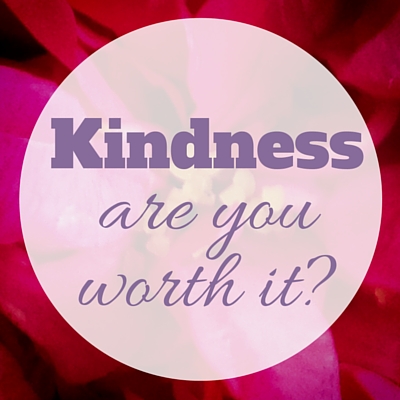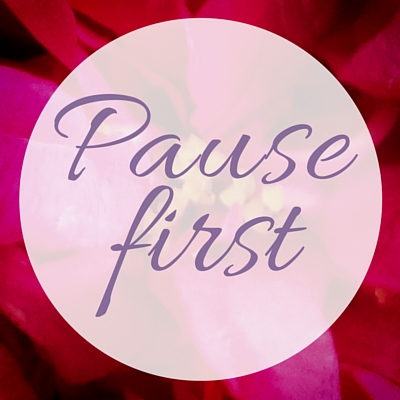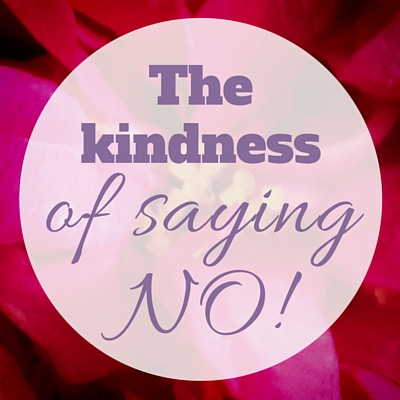 We are delighted to welcome women’s health expert Rachel Eyre who is sharing her take on why we find it hard to be kind to ourselves and what we can do to change that. Rachel has a wealth of experience helping women with all sorts of hormonal issues using physical therapies, natural family planning, fertility awareness, health coaching and nutrition. You can find the full range of her services at The Healthy Womb where you can book Skype sessions or arrange an appointment in her Guilford clinic.
We are delighted to welcome women’s health expert Rachel Eyre who is sharing her take on why we find it hard to be kind to ourselves and what we can do to change that. Rachel has a wealth of experience helping women with all sorts of hormonal issues using physical therapies, natural family planning, fertility awareness, health coaching and nutrition. You can find the full range of her services at The Healthy Womb where you can book Skype sessions or arrange an appointment in her Guilford clinic.
Don’t miss out on Rachel’s free video course if you are interested in improving your womb health, period health and fertility.
Why do women find it so hard to be kind to themselves?
I believe that this is something that has evolved with us and been compounded by modern living. Women are programmed by their hormones to care and give people attention both as part of the menstrual cycle leading up to ovulation in order to attract a mate and also in general so that we care for our tribe. This was essential (and still is!) for the survival of our tribe our family units and we still fall back on it as a healthy stress response. For example, the most healthy behaviour for women who are stressed is to “tend and befriend” other women.
When we mix this with the modern lifestyle, we are either; working at full capacity in our job and running a household, or we have women who are the home makers. And that isn’t any easier as they are expected to run a perfect house and have the perfect children because apparently they have “extra time”, whatever that is.
Kindness at work
Women who work are used to being judged for their performance and taking maternity leave, or if they are called because one of their children is sick by colleagues who haven’t taken any kind of break. But if they don’t take a break, except for the birth itself, (as let’s face it, it would upset colleagues if you did that in the office) and work hard to get to the top are also judged. Look at Marissa Meyer at Yahoo who got given such a hard time in the press for going back to work after virtually no maternity leave at all.
Kindness for singletons
But just because you are single or childless doesn’t mean you are let off the hook. Instead, you are constantly asked: when will you find a partner/settle down/have children? Or alternatively get left out of social invitations for couples only and feel isolated as you watch your friends move on with the kind of life you are ‘supposed’ to have. And if you aren’t fitting into the cultural norm or expectation of what you are supposed to be doing and when, you had better be out there working it, whether that is dating as many people as you possibly can or doing some kind of self-improvement. Because society thinks if you haven’t found a mate yet, then clearly, you need fixing.
Kindness in the media
Images in the media often leave women feeling compelled to spend time and money looking perfect to match up to a heavily airbrushed image or a prepubescent model on the catwalk. And to top it all, if even if you do make it at work, find a partner, have children and feel good about yourself, we have more people than ever stuck in the sandwich generation. These are women caring for elderly parents (maybe their in-laws too) and their children.
I see so many women who just feel that they have to do so much to meet up to other people’s expectations and the perceived needs of others, which really do feel so real and intense in that moment, they are biologically programmed to feel that this is the right thing for them to do. It really is a perfect storm for being overwhelmed, overworked and completely not in the headspace at all for self-care.
Because you’re worth it?
If I am providing health coaching to a man, and he feels that adding a work out into his day or week will be beneficial to him, he will just book in the time and go and expect (and know) that other responsibilities will sort themselves out. Having a similar conversation with a woman couldn’t be more different. Even a woman who really feels that going to a yoga class once a week will really help her mentally and physically, who even acknowledges it has helped her in the past, will often say that she has to justify to herself that she is worth it.
Her need for self-care is overrun by internal dialogue such as “How will the improvement in mental resilience and physical strength be of benefit to my family?”, “Is it fair to be doing something for me when (insert list of chores here) needs doing?” “Shouldn’t I be spending every minute of free time I have with my partner/children/friends?” We really are wired differently and that is ok, we just have to accept that and work with it.
Time for ourselves
Women have the urge to look after everyone else due to biological programming and the societal pressure to serve everyone else’s expectations, that we often feel guilty or even that we are doing something wrong when we take time to be still, even for 10 minutes.
I hear of so many women who lock themselves in the toilet for 5 minutes (which doesn’t work anyway if you have young children who don’t understand the concept of boundaries) or try and hide in the kitchen when preparing or serving a meal, just to take a few minutes for themselves and not feel judged for doing so.
The result of all these pressures is a very real stress response which raises cortisol levels which can start knocking off all other hormones affecting our blood sugar levels, our thyroid hormones and our sex hormones leading to crazy menstrual cycles and mood swings that aren’t really us or serving us. And this really saddens me.
Luckily there is a growing number of women, especially in the wellness movement who are starting to become aware of this and making time to do self-care. They are discovering that being too busy, too stressed and too worried about what everyone else thinks isn’t serving them and starting to live their lives in the way that is best for them, their health and that of their family unit.
What is the one thing that women can do?
Pause first!
Pause. This works in so many ways. Firstly, before you do anything, think, “Do I really need to do this?” “Is it really necessary?” “Is there an easier way to do this?” It is amazing how many activities that we do that are not necessary, and could be done less frequently or in an easier way but because we are approaching them from a mindset of hurrying, rushing and stress, they actually take longer to do, and we feel bad about doing them.
Connecting with the task
If you really do need to do something, taking the time to pause and really connect with what you are doing, will enable you to look at it differently. Yes, you need to get the laundry done, but just start picturing how you will feel in nicely laundered clothes, how good you feel when you always have clean clothes for your children available or the amount of stress reduced when you aren’t hunting around first thing for clean underwear.
I started doing this myself after a long period of illness and it turned out so many things that I thought were essential both in my home life and working life, when I questioned them, really weren’t necessary. It was so difficult to let go of some things that I thought I had to do at work, but when I started questioning my manager, colleagues and people that were asking me for various things, what are they using them for, how often are they actually using the work I am producing, it turned out that I was doing so much that was just not needed and my body was responding to this in forcing me to take a rest by giving me pneumonia!
The kindness of saying no
The hardest time to pause is when people ask you favours: “Could you help me run the charity bake sale”, “Can you join the parent teachers association”, “Do you mind being the book club treasurer?” and it is so easy to say yes to make someone else’s life easier, when in fact, we are just adding more pressure into our own lives. I started saying “Can I get back to you about that?” and even harder, getting back to them to say “No”.
But there are many techniques you can use to get over the anxiety of saying no. I used to go through rationally and think, what IS the worst case scenario? They may be upset or put out, but that is their issue, but is getting myself worked up and in a tizzy about something I don’t have time to do just to save possibly upsetting someone else really worth all the extra energy?
I have since learnt about The Work of Byron Katie which I find really helps me deal with the internal conversation when I want to say no but I am finding it hard, imagining their responses or even stressing out about what their actual responses were, what they meant and imagined future scenarios. However, there are many methods and techniques out there that can help you.
Once I had done this a few times, it did indeed get easier to say no in the future, without even feeling that I had to qualify or justify why I was saying no. And I found myself having extra time and energy to things that were nurturing and nourishing for me. I even found that the things I did have to do were easier to get done as my brain was no longer thinking about everything else I had to do and just focussed on the task at hand.
Instead of reacting instantly to each demand required or asked of me immediately, I found the act of pausing, taking time and really deliberately choosing to do or not to do something was the first step to giving me back time and energy to focus on what was really important to me, which in turn gave me more time to spend on self-care which benefitted me and my tribe.
My health has improved exponentially, especially my stress levels. I now have time to enjoy and experience my life in glorious techni-colour in my own timeframe, when things are right for me, not when they are expected by someone else. I have time and resources to go to yoga, have a massage and spend quality time with my partner and I am no longer hindered by anyone else’s expectations.
And so I invite you to start pausing in your own life as well. I invite you to not reply immediately to someone else’s request and I invite you to say “no” when you need to and see how much space and calm opens up in your life.
You can contact Rachel at [email protected]
If this has got you thinking about the way you look after yourself (or not) why not join the conversation by leaving a comment below. You can also look at the full series of articles on kindness.



